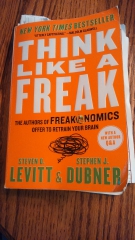
(Photo: L'Atlantique à Edisto Beach, Caroline du Sud)
Cet ouvrage récent réunit l’apport de quatorze universitaires et praticiens de sept pays au sujet du concept de résilience dans plusieurs domaines : psychologie et psychiatrie, socio-écologie, travail social, réadaptation, éducation, organisation des systèmes, science des matériaux, économie, culture, droit et relations internationales. De là le terme au pluriel Résiliences, Ressemblances dans la diversité.
"L’origine de ce terme se perd dans la nuit des temps, mais il a été utilisé dans une variété de contextes depuis au moins 2065 ans. Son histoire est riche et variée. Il est passé d’une langue à l’autre, d’un pays et d’une culture à une autre, d’une discipline à une autre. Au cours de ce processus, il a été défini et redéfini". Un chercheur aurait trouvé plus de 225 définitions de la résilience. "Au cours de la Seconde guerre mondiale, la résilience est devenue monnaie courante dans des disciplines comme la psychologie et l’anthropologie. (...) Dans son essence, la résilience est un simple concept. Tout comme un matériau doit être robuste et ductile afin de résister et d’amortir la force qui lui est appliquée, la société, par analogie, doit manifester de la résistance et de l’adaptabilité, et ses membres doivent réagir de la même manière. Le problème est comment un tel état peut être atteint. Holling, l’écologue des systèmes, définissait la résilience en référence à l’homéostasie, la propension d’un système à revenir à l’équilibre. Les systèmes écologiques pourraient le faire si on leur permettait de récupérer après des chocs, si l’échelle temps impliquée n’était pas si longue que celle du changement climatique ou de la montée du niveau des mers, et si les frontières du système étaient fermées. Le problème avec les individus et la société, et davantage avec la nature, est l’absence d’une base pour l’équilibre. Tout est tendanciel. Alors, la meilleure formulation pour la résilience est celle basée sur bondir en avant (bouncing forward) et non pas se remettre (bouncing back) après que le système a reçu un choc. Bien sûr, la physique et les sciences sociales ont remis en question l’utilisation du concept d’équilibre et ce, de manière remarquablement similaire."
 (Photo: Greenville, Caroline du Sud)
(Photo: Greenville, Caroline du Sud)
 "Think Like a Freak", veut dire penser de manière plus efficace, plus créative, plus rationnelle aussi. Je viens de découvrir avec plaisir
"Think Like a Freak", veut dire penser de manière plus efficace, plus créative, plus rationnelle aussi. Je viens de découvrir avec plaisir